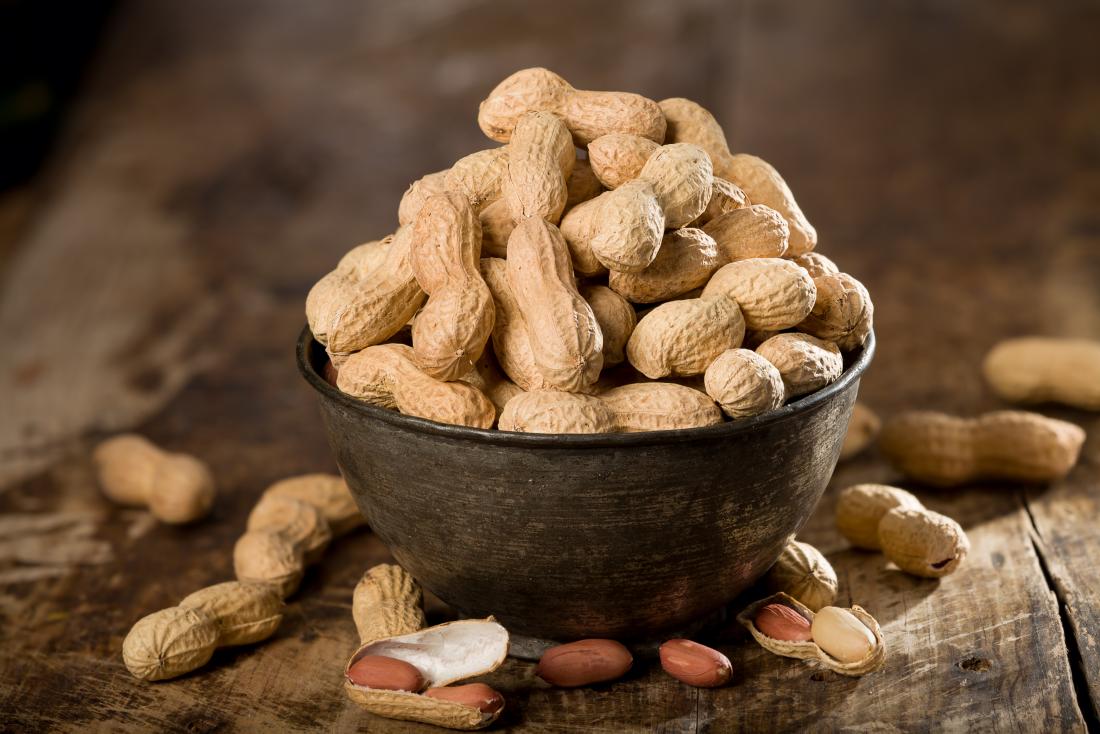Peanuts are one of the most widely consumed legumes globally, valued for their rich flavor and versatility in a variety of dishes. They are also an excellent source of protein, healthy fats, and essential nutrients. For diabetics, choosing foods that help manage blood sugar levels is essential. So, are peanuts a good option for diabetic patients? In this article, we’ll explore the nutritional benefits of peanuts, how they affect blood sugar levels, and how they can be included in a diabetes-friendly diet.
Nutritional Benefits of Peanuts
Peanuts are a rich source of protein, healthy fats, fiber, and important vitamins and minerals. A 28-gram (1-ounce) serving of peanuts contains:
- Calories: 164
- Carbohydrates: 6 grams
- Fiber: 2.4 grams
- Protein: 7 grams
- Vitamin E: 2.4 mg (about 12% of the daily recommended intake)
- Magnesium: 50 mg (about 13% of the daily recommended intake)
- Potassium: 200 mg (about 6% of the daily recommended intake)
- Monounsaturated fats: 7 grams
Peanuts are an excellent source of monounsaturated fats, protein, and fiber, all of which contribute to better blood sugar control. They also provide essential vitamins like Vitamin E and minerals such as magnesium, which play an important role in metabolic health.
How Peanuts Affect Blood Sugar Levels
For diabetics, managing blood sugar levels is key to overall health. The glycemic index (GI) and glycemic load (GL) of foods play an important role in determining their effect on blood sugar.
Glycemic Index and Glycemic Load of Peanuts
Peanuts have a low glycemic index (GI) of about 14, which means they have minimal impact on blood sugar levels. Foods with a low GI are digested and absorbed slowly, leading to gradual increases in blood sugar rather than sharp spikes. The glycemic load (GL) of peanuts is also low, meaning they have a minimal effect on blood glucose levels, even when consumed in larger portions.
The fiber, protein, and healthy fats in peanuts help slow the absorption of glucose, stabilizing blood sugar levels and ensuring more consistent energy throughout the day.
Peanuts and Insulin Sensitivity
Insulin sensitivity refers to how effectively the body uses insulin to regulate blood sugar levels. In Type 2 diabetes, insulin resistance occurs when the body’s cells do not respond well to insulin, leading to elevated blood sugar.
How Peanuts Help with Insulin Sensitivity
Peanuts are rich in monounsaturated fats and fiber, both of which can improve insulin sensitivity. The healthy fats in peanuts help reduce inflammation, a key factor contributing to insulin resistance. Fiber also aids in slowing glucose absorption, which can help regulate blood sugar levels. Consuming peanuts regularly as part of a balanced diet can improve insulin function and help manage blood sugar levels.
Peanuts and Heart Health
People with diabetes are at a higher risk for cardiovascular diseases. Peanuts provide several nutrients that promote heart health.
Healthy Fats for Heart Health
Peanuts are a good source of monounsaturated fats, which help lower bad cholesterol (LDL) and increase good cholesterol (HDL). These heart-healthy fats reduce the risk of heart disease, a common complication of diabetes. Additionally, the antioxidants in peanuts help reduce oxidative stress and inflammation, further protecting heart health.
Magnesium for Heart Health
Peanuts are also a good source of magnesium, a mineral that supports heart health by helping regulate blood pressure. People with diabetes often experience high blood pressure, so magnesium-rich foods like peanuts can help maintain healthy blood pressure levels and support cardiovascular health.
Peanuts and Weight Management
Maintaining a healthy weight is essential for managing diabetes, as excess weight contributes to insulin resistance and poor blood sugar control.
Peanuts for Satiety and Portion Control
Peanuts are high in fiber and protein, both of which promote satiety and help control hunger. The healthy fats in peanuts also contribute to feeling full longer. By including peanuts in meals, diabetics can better manage portion sizes, reduce overall calorie intake, and support healthy weight management, which is crucial for blood sugar control.
How to Include Peanuts in a Diabetic Diet
Peanuts are versatile and can be easily included in many meals. Here are some ideas for adding peanuts to your diabetes-friendly diet:
As a Snack
Peanuts can be eaten on their own as a healthy and satisfying snack. A small handful (about 1 ounce) provides a good amount of healthy fats, protein, and essential nutrients. For added variety, mix peanuts with other nuts and seeds for a nutrient-packed snack mix.
In Smoothies
Peanuts can be blended into smoothies for added texture, protein, and healthy fats. Combine with fruits, leafy greens, and unsweetened almond milk for a nutritious and blood-sugar-friendly drink.
In Salads
Chop up peanuts and sprinkle them on top of salads for a crunchy texture. Pair with leafy greens, vegetables, and a light vinaigrette for a heart-healthy, diabetes-friendly meal.
In Baking
Peanuts can be used in baking to make healthier bread, muffins, or cookies. Ground peanuts can also be used as a flour substitute in gluten-free recipes, providing healthy fats, protein, and fiber.
FAQ on Peanuts and Diabetes
Q1: Are peanuts safe for diabetics to eat?
Yes, peanuts are safe for diabetics. They have a low glycemic index, are high in healthy fats, fiber, and protein, and provide essential nutrients that help regulate blood sugar levels.
Q2: How many peanuts can diabetics eat?
A standard serving of peanuts is about 1 ounce (28 grams), which is approximately 28 peanuts. Since peanuts are calorie-dense, it’s important to consume them in moderation to avoid excessive calorie intake.
Q3: Do peanuts raise blood sugar levels?
No, peanuts have a low glycemic index and will not cause significant increases in blood sugar levels. The healthy fats, fiber, and protein in peanuts help stabilize blood sugar levels.
Q4: Can peanuts help lower blood sugar levels?
While peanuts do not directly lower blood sugar levels, their high fiber content, healthy fats, and ability to improve insulin sensitivity can help regulate blood sugar over time.
Q5: Can peanuts help with weight loss for diabetics?
Yes, peanuts are high in fiber and protein, which promote satiety and reduce hunger. By including peanuts in meals, diabetics can better manage portion sizes, reduce overeating, and support healthy weight management.
Conclusion
Peanuts are a nutritious and heart-healthy food that provides several benefits for diabetics. With their low glycemic index, high content of healthy fats, fiber, and protein, peanuts help regulate blood sugar levels, improve insulin sensitivity, support heart health, and assist with weight management. By incorporating peanuts into your diet, you can enjoy their many health benefits while effectively managing your diabetes.



